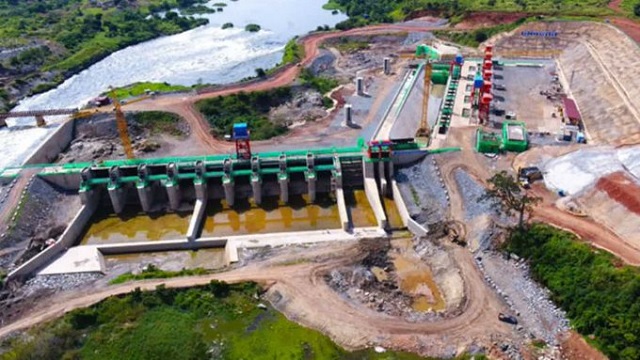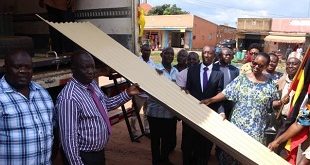
Kampala, Uganda | THE INDEPENDENT | Legal, policy, and regulatory reforms instituted between 2022 and 2023 in the electricity sector were not felt by power consumers as the year 2023 ended.
It had been hoped that the Electricity (Amendment) Act, 2022 passed by parliament in May 2022 would make electricity cheaper and more accessible to consumers across the country.
But as 2023 ended, some of the challenges identified in the old energy policy and the current electricity connections policy still existed with a majority of Ugandans unable to access electricity for lighting and cooking.
The Minister of Energy, Ruth Nankabirwa in her end-of-year message in 2022 promised changes now that she was armed with new provisions after certain of the Electricity Act (the Principal Act) of 1999 were amended. The amendment to end the monopoly in electricity distribution had led to excitement.
Some players in the sector welcomed the development while some experts who had experienced similar changes in other countries said it was too early to celebrate.
Slow implementation
Some sector players that URN has spoken to indicated that the Ministry of Energy and the Electricity Regulatory Authority has been slow in effecting the changes that further required specific guidance on reforms touching five areas of governance, policy, the electricity market, and the administrative aspects at the Electricity Regulatory Authority (ERA) and aspects of electricity consumers.
URN was not able to reach, Engineer Irene Bateebe, the Permanent Secretary at the Ministry for comment. The Minister of Energy, Ruth Nankabirwa has promised to provide an update as part of her New Year update about the sector.
But late last year, Engineer Abdon Atwine, the Assistant Commissioner in Charge of the Electricity supply said there had been milestones including the Energy Policy for Uganda 2023, and the Energy Transition policy which is expected to serve as crucial tools and major contributions to the country’s ambitious agenda.
In April 2023, the Cabinet approved a new Energy Policy replacing the 2002 Energy Policy. The new policy still mentions the low electricity access, systems power losses, undiversified electricity generation mix, and high upfront connection costs among the challenges.
By the end of September, the government’s “second generation” of power sector reforms will see three state-owned companies emerge in the sector. These reforms should have been in place by mid-2023. Abdon Atwine indicated much progress has been made in that area.
“Most of us have been used to many distribution companies, but we are looking at reducing these companies to one distribution utility soon and it has its advantages,” said Atwine.
While there have been talks about rationalizing or merging some of the entities in the sector, the Ministry indicated that the Electricity Regulatory Authority will be retained to continue with its regulation of the sector.
Ending Bulk Buyer or Monopoly The electricity law as amended gave the Electricity Regulatory Authority more powers in terms of licensing a company to supply electricity in bulk to a holder of an electricity distribution license.
Dr. Jacob Okoboi, the Director of Economic Regulation at the Electricity Regulatory Authority indicated to URN that regulations regarding the unbundling of the electricity distribution or ending the monopoly provided for under the 1999 Electricity Act were finalized.
“This regulation has to do with selling and buying in bulk by other than Uganda Electricity Transmission Company Limited. So we have a multi-market model.But UECTL as a government company has been a system operator and it is the only company that has the license for operating the high voltage lines and substations. So in that case to regulate that area, there is also a regulation on independent power transmission,” revealed Okoboi, who oversees the electricity supply industry.
It is expected that with the implementation of those regulations, some changes will be noticed in the sector toward the end of 2024 given that electricity has been part of the NRM manifesto, the National Development Plan III, and the Vision 2040.
Statistics from the Ministry indicate that as of December 2022, Uganda had approximately 3,385 km of transmission lines, which the government aims to increase to 4,354 km by 2025. Other studies have shown that investment in transmission is still insufficient, the reason why power generated from some dams cannot be distributed.
The regulation in transmission may be an exciting development for companies and individuals willing to invest in the country’s transmission infrastructure.
Apart from opportunities in the transmission sector, the introduction of net metering is expected to take off by the end of 2024. Net metering will come as a relief to generation companies.
“There will be eligibility to do net metering. If you have your generation source, and you are generating more than you can use, then you are capable of banking some of your energy at the network and be able to use it at a later stage,” Okoboi explained. Some of those changes await mark rules to do with bulk buying and selling that are yet to be announced by ERA.
There will need to be a designated market operator and the market rules. “So all that is coming to create this environment in which the bulk buying and selling is going to happen and a competitive levels,” revealed Okoboi Some of the milestones in the governance area from ERA’s point of view include improvement in dispute resolution and the establishment of the energy fund and the enhancement of the electricity generation levy charged by the regulator from 0.3% to 0.7%.
Will Karuma Be Commissioned in 2024?
One of the controversial projects to look for in 2024 is the 600 MW Karuma Hydro Power Dam. The dam should have been commissioned at the end of this year but the contractors again missed the deadline.
Karuma has been one of the projects that continued to cause headaches to Ruth Nankabirwa and her colleagues Opolot Okasai and Peter Lokeris whenever they appeared before Parliament’s Natural Resources Committee chaired by Dr. Emmanuel Otaala.
In November, State Minister for Energy, Okasai Opolot told a renewable energy conference in Kampala that the dam is expected to be completed by September 2024 and that four of the six units at the dam were fully operational. Will the Chinese contractors meet the deadline this time around?
Karuma Hydro Power Dam is projected to boost Uganda’s total capacity by 44% and leave potentially over 1000 MW of excess power generation capacity. While it appears that all is set for the regulations to get in force, Richard Matsiko, an electrical engineer and distribution expert at Uganda Electricity Transmission Company Limited is of the view that something must be done about the land tenure system.
“We all know the challenges the challenges we face when we are implementing projects. And we must at all times be positioned to reach markets external to our boundaries,“ suggested Matsiko. “This is one sure way of ensuring there is market and we can ensure load growth. Which will attract private investor participation,” he added.
For a consumer, the expectation is that the planned changes should ensure that the electricity is not only reliable but accessible. Some experts suggest that that will depend on strong regulation and market rules. “If you are removing monopoly and competition, it means people go and discuss, negotiate, and determine what they believe is competitive enough as a price they would consider to buy and sell power,” said Okobo from a regulator’s point of view.
********
URN
 The Independent Uganda: You get the Truth we Pay the Price
The Independent Uganda: You get the Truth we Pay the Price


